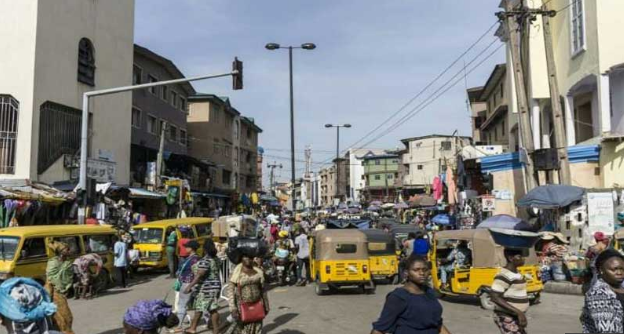It was 7.30 a.m. and a resident of Mararaba near Abuja, Mr Abdul Abubakar boarded a luxury bus to his work place.
As usual, some minutes later, the bus attendant walked up to him and asked him to pay transport fare.
As Abubakar searched for his wallet, he discovered that the wallet had disappeared; “oh my God!’’, he exclaimed.
Appearing embarrassed, of course, a passenger offered to pay the fare and he left the spot to get a means of making up for the day.
Abubakar’s experience is one out of numerous of such notorious activities of pick-pockets on Nyayan-Mararaba route on which residents of the area ply on daily basis.
The route is notorious for pick-pocketing and passengers are constantly warned by security operatives to be mindful of their belongings.
Pick-pocketing — a form of theft that involves stealing of money or other valuables from the person of a victim without them noticing– is rampant now, according to the residents of the area.
Mararaba, a border town between the Federal Capital Territory (FCT), Abuja and Nasarawa State, is a densely populated area, making it a haven for such activities.
Places such as the Mararaba Bridge, market, Sharp Corner arena, have been identified by the Nigeria Police as notorious spots for pocket-picking.
So, pick-pockets capitalise on the dense population of the area and the eagerness of the residents to board vehicles early in the morning to various places in Abuja to steal.
More than two years ago, the police in Lagos State arrested a suspected pickpocket at Oshodi area of the state while removing N18,000 from a commuter’s pocket during a bus stampede.
The victim raised an alarm, which made the suspect to drop the money and ran away before the Rapid Response Squad operatives in Lagos State caught him.
The police said that after listening to the victim’s accusations, they requested for his phone numbers and when they called it rang inside the suspect’s handbag.
“On Mondays, Wednesdays and Fridays, I am always in Oshodi pick-pocketing; I steal an average of eight phones on Mondays and maybe like nine phones on Fridays. I don’t really get more than five phones on Wednesdays’’, the police quoted the suspect as saying.
The police said that the suspect was later transferred to the Lagos State Taskforce on Environment for prosecution.
Sharing his experience, Mr Henry Chinemerem, a civil servant in Abuja said that he had been victims of pick-pockets in Mararaba-Nyayan road linking Abuja on many occasions.
“Pick-pockets spoil my day whenever they rob me because I would be forced to return home,’’ he said.
Another victim of pick-pocketing simply called Mrs Mary, a road user, stated that she always clutched her hand bag in her arm carefully whenever she found herself around Mararaba Bridge for fear of pickpockets.
Similarly, Mr Johnson Paul, a trader, observed that pick-pocketing had resulted in jungle justice on many occasions by which the mob set suspected pick-pockets on fire.
Mr Biodun Adekunle, a police corporal, stated that many road users were not always at alert and they watched the activities of the pickpockets until they became victims.
Adekunle advised road users not to allow themselves to be taken unaware by pickpockets who could engage in various tactics to distract them for such theft.
“Take sensible steps and you can beat the pickpockets and bag-snatchers at their own game; be wiser on the street and stay safe,’’ he advised.
Observers note that in most cases, the thief’s trick in that manner is not uncommon as they appear nice and warm, so that nobody suspects any harm.
They advise the public not to zone out too much in public, expressing concerns that pick-pocketing has become a worrisome development among the youth.
They also suggest that security personnel should be stationed at overcrowded areas and market places to check pick-pocketing and jungle justice.
“Commuters should be very careful and watchful; more than enough cash should not be moved about and they should avoid rushing to board vehicles.
“Road users should partner with security agencies rather than take laws into their hands.
“Beside this, massive orientation campaigns should be organised to sensitise everyone to the dangers of pick-pocketing and the bad image it gives to the country,’’ they advise.
Security experts, nonetheless, warn that when traveling on public transportation with bags, commuters should always ensure that their hands are tightly on their belongings when the train or bus slows down to stop.(NANFeatures)

